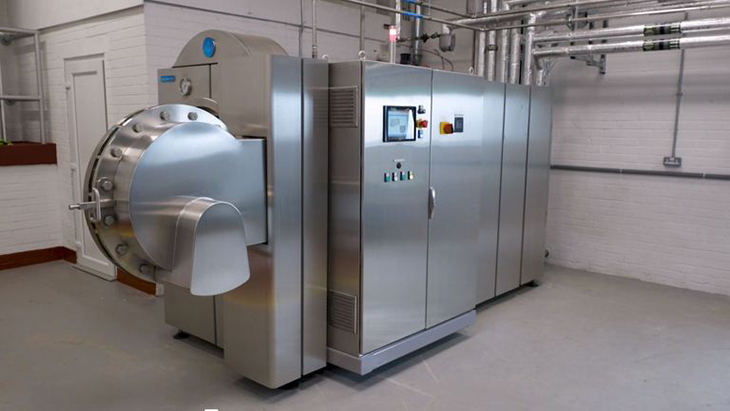
In the United Kingdom, the largest provider of end-of-life services is set to expand its offerings to include “resomation,” also known as water cremation.
Among environmentally conscious funeral procedures, resomation stands out as a viable option beyond unconventional forest burials. However, there is a need to raise awareness about this method.
Resomation, scientifically termed alkaline hydrolysis, efficiently breaks down a human body into a skeletal state within just four hours, utilizing an alkaline solution. Following this process, the bones are further refined into powder form and then placed in an urn intended for the family’s possession.
This approach was chosen by the late anti-apartheid luminary Archbishop Desmond Tutu after his passing in 2021. Notably, resomation consumes five times less energy compared to traditional cremation by fire.
Co-op Funeralcare, the United Kingdom’s largest funeral services provider, has declared its intention to introduce resomation later this year, subsequent to gaining regulatory approval in the prior year.
“[We] will be providing people with another option for how they leave this world because this natural process uses water, not fire, making it gentler on the body and kinder on the environment,” Julian Atkinson, director of resomation company Kindly Earth, said when he spoke to Euro News.
For those interested, Euro News reported in their article about the new resomation service that a fire cremation releases approximately 245 kilograms of CO2 and equivalent emissions. They also referenced a survey indicating that 89% of adults in the UK were unfamiliar with water cremation before.
Many individuals have kept up to date with alternative end-of-life choices for several years, covering advancements in the green funeral industry as they emerge. The process of laying chemically treated bodies to rest in a coffin made from chemically treated wood within a concrete-lined burial vault is not particularly environmentally friendly. A Dutch entrepreneur is addressing at least the latter part of this process by introducing a coffin constructed from fungal mycelium.
The mushroom coffin can transform a deceased body into soil nutrients and contribute to the Earth’s ecosystem in as little as two to three years—a truly eco-conscious option for the end of life.
In the United States, where a family might spend more on a double grave plot in a cemetery than on their house, a company named Better Place Forests has established memorial forest preserves where trees are sold as living gravestones. The profits from this venture are dedicated to the perpetual protection of these forests. Legally, once land is designated as a cemetery in the US, it cannot be repurposed for any other use.
These preserves, located in Connecticut, Massachusetts, California, Arizona, Minnesota, and soon Illinois, boast remarkable features like heritage sugar maple stands, California redwoods, quaking aspen colonies, and stunning views of the Pacific or Twin Lakes. Each tree is treated as a sacred site, with exclusive ash-scattering ceremonies, providing families a place to pay their respects to their loved ones’ final resting spot.
In 2019, Washington state became the first in the nation to legalize human composting, while back in 2016, the “Green Reaper” emerged as one of the initial entrepreneurs in the country to offer environmentally friendly mortuary services through her company, Cornerstone Funeral Services.
All of these approaches are linked to the Earth, or in the case of traditional cremation, to fire. Yet, there have always been individuals who share a profound connection with water. Resomation caters to this connection, offering those individuals peace of mind that their loved ones’ passions continue to be honored even after their passing.
What are your thoughts? Please comment below and share this news!
True Activist / Report a typo


